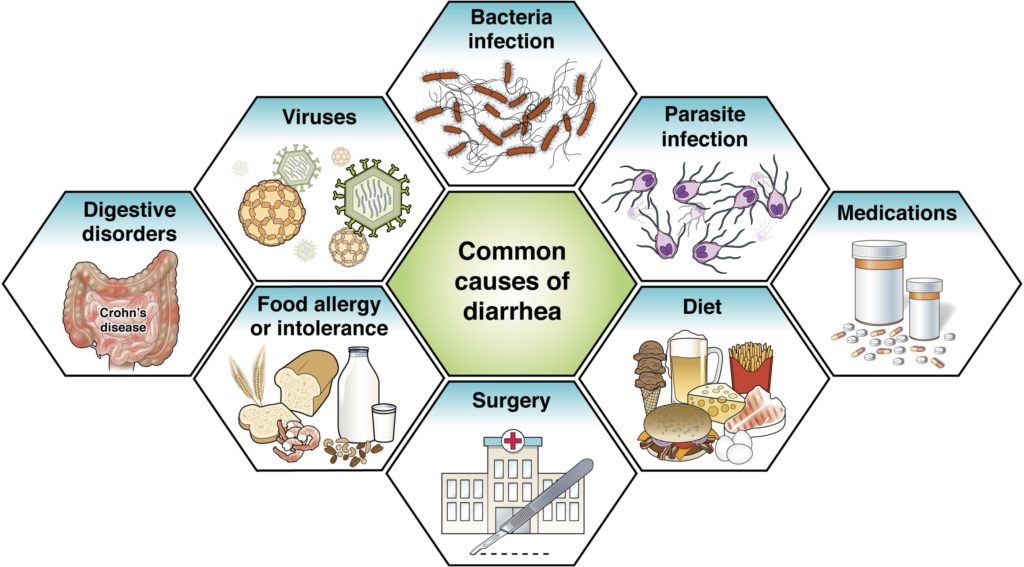Diarrhea is a common health problem that impacts 179 million people in the U.S. a year. Acute diarrhea lasts a short time, around one to two days, but may last longer, and then go away on its own.
Diarrhea that lasts more than a few days may be a more serious problem. When diarrhea lasts four weeks or more, it is considered chronic, or long-term, diarrhea.

People with diarrhea may have one or more of these symptoms
- An urgent need to use the bathroom.
- Cramping.
- Loss of control of bowel movements.
- Nausea or upset belly.
- Belly pain.
Call your doctor right away if you see blood in your stool, have weight loss, fever or great pain, or if you suspect you have dehydration or malabsorption.
Button TextDehydration
Diarrhea can cause dehydration, when your body does not have the fluids it needs. Symptoms include:
- Thirst.
- Urinating less than usual.
- Feeling tired.
- Dark-colored urine.
- Dry mouth.
- Sunken eyes or cheeks.
- Light-headedness or fainting.
Malabsorption
Diarrhea can also cause malabsorption, when your body is not able to absorb healthy parts of food. Symptoms include:
- Bloating or feeling full.
- Changes in appetite.
- Gas.
- Loose, greasy, foul-smelling stool.
- Weight loss.
People with diarrhea caused by some infections may also have one or more of these symptoms:
- Bloody stools.
- Fever and chills.
- Light-headedness and dizziness.
- Throwing up.
Tests to identify the cause of chronic diarrhea
- Giardia: a parasite that can be found using a stool test.
- Celiac disease, or gluten sensitivity: found using a blood test.
- Bile acid diarrhea: stool samples will be taken for 48 hours to find out if bile is being used correctly by your stomach. Bile acid is a normal fluid your body makes in the liver and aids in digestion.
- Fecal calprotectin or fecal lactoferrin: stool test that can tell if there is inflammation, or swelling, in your intestines (gut). This can help find health issues, such as inflammatory bowel disease.
Based on how bad your symptoms are, you might need other tests, such as a colonoscopy to look inside your colon.
If you have recently traveled outside of the country, more tests might be given depending on the area.
IBS-D
You might have IBS with diarrhea (IBS-D) if you often:
- Have loose stool.
- Feel an urgent need to move your bowels.
- Have cramps or belly pain.
- Have gas.
- Have bloating (or swelling) of the belly.
What is IBS-D?
Irritable bowel syndrome (IBS) is a health issue found in your intestines (gut). There are three types of IBS: IBS with diarrhea (IBS-D), IBS with constipation (IBS-C) and IBS mixed (IBS-M).
While the cause of IBS is unknown, it can be treated. IBS is a common health issue, impacting more than 35 million Americans.
IBS does not cause lasting harm to the bowels and does not lead to cancer.
IBS can impact you physically, emotionally and socially. Most people with IBS are able to control their symptoms through diet, stress management and, sometimes, medication prescribed by their doctors.

